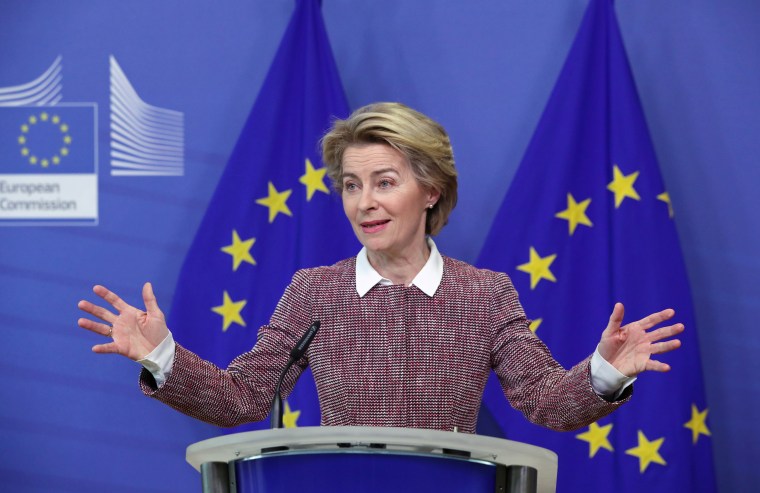The European Union is reviewing the legal framework for digital information, goods and services—a process with the potential to change the course of internet history for journalists and everybody else.
In June, the European Commission launched public consultations about the upcoming Digital Services Act (DSA), an initiative to review and expand rules established 20 years ago in the e-Commerce Directive. The media ecosystem has transformed dramatically since then. EU officials hope the DSA—along with other policy and legislative measures—will address a range of challenges, including disinformation, the influence of algorithms and automation on the information available online, and media literacy.
Central to the discussion is controlling access to illegal information through content moderation, a process that CPJ has reported can impede journalists reporting on illegal activity. The DSA will influence how EU member states approach such content, and the protections for news and opinion. But like most EU policy or legislation, it will also have implications worldwide, as countries from Vietnam to Turkey are introducing their own attempts to regulate the online sphere. Policy makers and experts told CPJ this is a key moment for the EU to step up and defend digital freedoms.
“The DSA will be more or less the new constitution of the internet,” Moritz Körner, a member of the European Parliament and shadow rapporteur on the body’s civil affairs committee (LIBE), told CPJ in July. “That’s why it is so vital to follow a strong fundamental rights approach in the negotiations to come.”
In discussions attended by CPJ in Brussels, press freedom advocates and EU officials have already started to frame the debate, advocating that controls on illegal expression should be limited to what is necessary and proportionate, and that companies should not be the arbiters of what information is available online.
“We have to empower users and give them more possibilities to choose which content they want to see and in which order,” Körner said. “The DSA must not limit freedom of expression, access to information and innovation.”
The removal of journalistic content, or sensitive yet legitimate source material, is damaging for press freedom, and CPJ has repeatedly stressed that journalists must be able to appeal decisions that jeopardize their work. Some laws passed by EU member states have outsourced censorship decisions to platforms, raising issues regarding the lack of transparency, legal guidance, and oversight involved. Notably, CPJ and other press freedom organizations expressed concern regarding Germany’s Network Enforcement Act (NetzDG) in 2017. A French court declared much of France’s 2019 Avia Law unconstitutional in June this year, striking down requirements for companies to remove content that users flag as illegal within 24 hours, among other provisions, reported the Brussels-based European Digital Rights group. EU member states may be required to review national policy and legislation based on the DSA.
“The draft law must protect journalists and media organizations from arbitrary treatment of their content on digital platforms,” Alexander Fanta, the Brussels-based correspondent for German news website netzpolitik.org, told CPJ. “Removal of journalistic content must be carefully weighed and not subjected to automated filtering. The new law must be an enabler, not a roadblock for media freedom.”
The DSA could also influence discussions on other EU legislation, like the draft Terrorist Content Online Regulation. CPJ has noted that past proposals of that regulation lacked a requirement for judicial review of takedown requests, allowed a short timeframe for companies to comply, and even considered automated filters to prevent certain content from being uploaded—measures which could undermine digital journalism.
For many media organisations, the DSA is an opportunity to rebalance an online landscape dominated by Big Tech, the companies behind major social media platforms and search engines that enable access to news, but absorb advertising revenue and audience data that would otherwise help sustain independent journalism.
“As long as up to 80% of advertisement revenue goes to the big platform providers, the future of independent journalism is at great risk,” Renate Schroeder, Director of the European Federation of Journalists (EFJ), who campaigns in part to improve the working conditions of journalists, told CPJ.
“How to ensure an enabling environment for independent professional journalism in the digital ecosystem will depend on ensuring a level playing field and fair digital competition enforcement,” she said.
Ursula von der Leyen, who announced the DSA in summer 2019 after she was elected president of the Commission, committed at the same time to ambitious plans to defend the rule of law and democracy in EU member states, including media freedom and freedom of expression.
These are already underway. This September, the Commission’s Rule of Law Mechanism will provide its first annual assessment of states’ compliance with rule of law concerns, including press freedom. Separately, the European Democracy Action Plan, to be published in November, should provide a blueprint for media funding, regulation of market concentration, and steps to increase media pluralism. However, it remains to be seen how the DSA fits —and how the three initiatives will together lead to meaningful change for journalists themselves.
Yet the e-Commerce Directive serves as a reminder of the precedents the DSA could set for years to come. Maria Luisa Stasi, a senior legal officer at the international freedom of expression organization Article 19, is following the DSA closely. “It is important to get this right,” she told CPJ. “The next opportunity will probably come around in 2040.”
